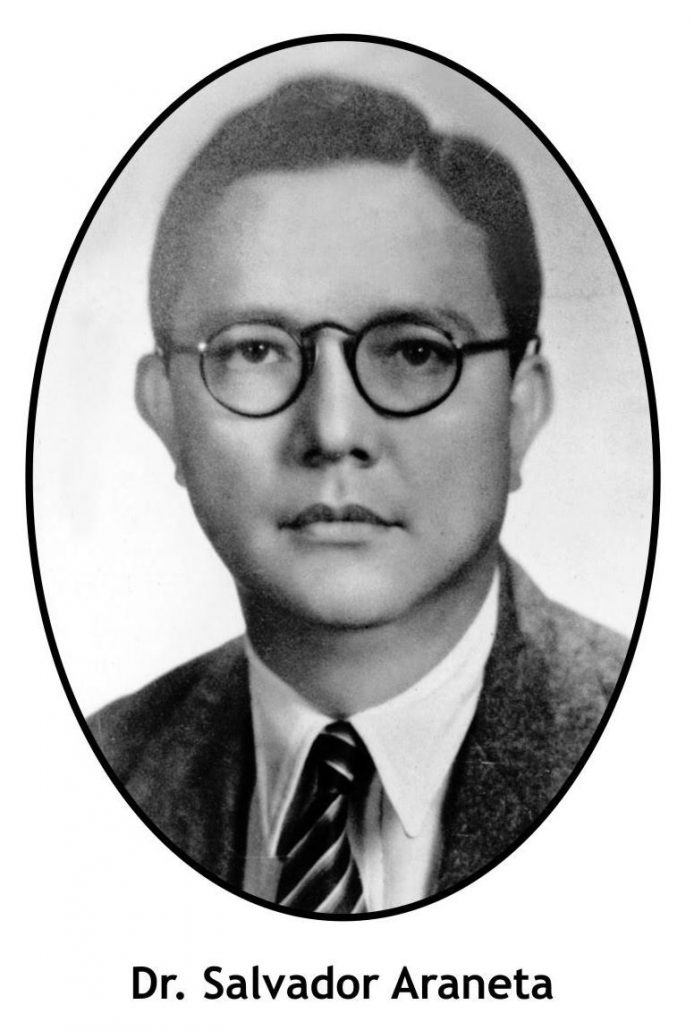 THREE members of the citizen’s group interested in the bill shall have the right of voice and vote in the corresponding Commission of the official body, and if approved in that Commission, then they shall have the right of voice and vote in the plenary session of Parliament.
THREE members of the citizen’s group interested in the bill shall have the right of voice and vote in the corresponding Commission of the official body, and if approved in that Commission, then they shall have the right of voice and vote in the plenary session of Parliament.
The Parliament of Citizens shall be composed of delegates of living forces of the country in the national level, representing different professions or occupations.
The members of the citizen’s body shall receive the compensation that may be granted by their respective organizations, and no amount from the Government. The secretariat, technical men and office materials shall be provided by the private organizations concerned.
EXPLANATORY NOTES
The rationale for the creation of these groups is to have the sectors with different advocacies represented in the legislative halls of the nation. There will be members from various occupations and business interests and have an especially strong group of the laboring class-further divided into city, farm, fishing, mining, people with special needs, and other interested sectors.
Democratization of power must be approached from three sectors, namely: first, the active participation of citizens, separately or in groups that are not accredited to the State, second, the participation sub rosa in public office or functions through living forces of the nation which are properly accredited by the State and third, by a system of government with many centers of power — horizontal or vertical, where men cannot entrench themselves indefinitely. This tool was devised to give voice to the weak, the powerless and the poor.
This plan also provides for the creation of citizens’ groups functionally organized as a parallel body to the public group, and is a good compromise to promoting the system of participatory democracy which will make democracy more meaningful to the citizens of the country, without having to become part and parcel of the establishment. This is the great virtue of the proposed system.
The members of the Parliament of Citizens as well as the members of the Citizens’ Assembly are not public officials. They are members of intermediate bodies and will not receive compensation from the Government, but from the organization that they represent.
It will be noted that the Commissions of these bodies will perform the function of the study committees of the official legislative body. Two or three members of these intermediate bodies interested in a particular bill are given the power of voice and vote, not only in the corresponding Commission of the official body, but also in the plenary session of the official body that is in the Parliament, or in the corresponding State Assembly.
Therefore a public official in a non-career office, who is disqualified to continue serving the Government after a stint of six years is not disqualified to serve as a member of an intermediate body attached to the Citizens’ Parliament or to a Citizens’ Assembly.
CHAPTER IX
HUMAN VALUES
Article 72. The good Society to be established under the Constitution will require a people reborn along the faith of the great religions of the East, to practice a new humanism which will not make them the slaves, of modernism, but will be motivated by the spirit of togetherness, of caring and sharing, of being accepted, and of helping others in finding their place in society, which is the answer to the social cancer of alienation and materialism. These will require heroic people for nation building.
To specifically spell out the new values, the National Identity, Culture and Education Authority shall be created by an Act of Parliament. It shall have mixed powers of legislation, regulation, and implementation placed under the supervision of the President. The members thereof shall be representing the National Organization of Churches, mass media, education, entrepreneurs, women, and labor.
The power of taxation may be granted by an Act of Parliament from specific sources to promote through the use of mass media the best of our culture, the new human values and the needed socio-economic policies to support those values.
Article 73. Property ownership shall be looked upon as a stewardship for the promotion of the common good of society, and shall be exercised with social consciousness and never as an absolute right.
EXPLANATORY NOTES
The provisions of Articles 72 and 73 are self-explanatory. The reader is referred to Part IV. “Democratization of Man” from the book Bayanikasan
-The Effective Democracy for All by Salvador Araneta, for a more extended discussion of the subject. These values can be studied from three angles covered in the three chapters of Part IV, namely, “Humane Values to Structure the New Man;” “Policies in Economic Matters;” and “Bayanikasan.”
A study of a human society, as envisioned by modern day Popes, starting with Pius XI followed by Pius XII, John XXIII and Paul VI are described in Chapter 27 of the above book. These are Mater Et Magistra and Pacem in Terris and in Chapter 28, Populorum Progressio.
The democratization of man from a patriotic point of view is discussed in Chapter 29 entitled, “Rizal and our Cultural Revolution.” The same subject is studied in the national and international fields covered in Chapter 30 entitled “Love of Country and Love of Humanity.” (To be continued/PN)

